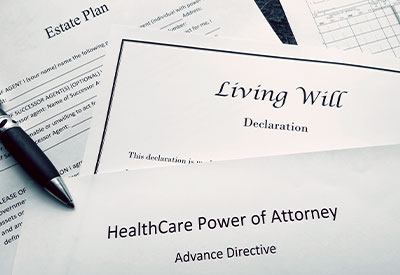Estate planning isn't just for the wealthy or elderly – it's an essential obligation for anyone who wants to protect their assets, health care choices and loved ones. While many young adults believe they don't need an estate plan, having basic estate planning documents in place can prevent unnecessary complications and ensure your wishes are carried out, regardless of your current financial situation or life circumstances.
What is estate planning and why do young people need it?
The concept of estate planning often brings to mind images of wealthy retirees carefully dividing vast fortunes, but this common misconception overlooks the fundamental purpose of estate planning: protecting yourself and your loved ones, regardless of your age or financial status. Estate planning involves creating legal documents that outline how you want your assets distributed and affairs handled if you become incapacitated or pass away. For young adults, this planning serves several crucial purposes that extend far beyond simple asset distribution.
Young people today have complex digital lives, substantial student loan debt and often carry significant life insurance policies through their employers. Without proper estate planning, these modern assets and obligations can create unexpected complications for families. Even if you're in your 20s with minimal traditional assets, an estate plan provides essential protections that can prevent legal battles and ensure your wishes are respected.
What documents should be included in a basic estate plan?

The foundation of any estate plan begins with a last will and testament, which specifies how you want your assets distributed after death. For young adults, even if you don't own significant property, a will can designate who receives your personal belongings, digital assets, and any future inheritances or insurance payouts.
For parents of young children, a will serves a crucial purpose beyond distributing assets – it allows you to legally designate who will raise and care for your children if both parents pass away. Through your will, you can nominate guardians who share your values and parenting philosophy, ensuring your children will be cared for by people you trust. This guardianship nomination carries significant weight with courts, who typically honor parents' wishes unless there are compelling reasons not to. Without such designation in a will, courts must make these incredibly personal decisions based on state laws and limited information about your preferences, which may result in your children being placed with family members or others you wouldn't have chosen.
Your will can also include specific instructions about your children's upbringing, such as educational preferences, religious considerations and other important aspects of their care. Additionally, you can name alternate guardians in case your first choice is unable or unwilling to serve in this role when needed. This careful planning through your will provides peace of mind that your children's future care aligns with your wishes and values, even if you're no longer there to guide them directly.
In short, this basic document can prevent family disputes over numerous issues and help ensure your wishes are legally binding.
Beyond a will, young adults should strongly consider establishing a durable power of attorney. This crucial document grants someone you trust the authority to manage your financial affairs if you become incapacitated. The importance of this document becomes particularly clear when considering ongoing financial obligations like student loans, rent payments or car loans that need consistent management, even if you're temporarily unable to handle them yourself.
Health care directives, including a living will and health care power of attorney, round out the essential documents for young adults. These papers outline your medical care preferences and designate someone to make health care decisions on your behalf if you're unable to do so. For young adults who may not be married or have children, these documents become especially important, as parents or siblings might otherwise struggle to make medical decisions without legal authority.
What happens if you die without an estate plan?

The consequences of dying without an estate plan, legally known as dying "intestate," can be far-reaching and often surprising. When someone dies intestate, state laws determine how assets are distributed, following a rigid formula that may not align with personal wishes. These laws typically prioritize closest living relatives, which means parents might inherit everything, even if you would have preferred to leave assets to siblings, friends or charitable organizations. Furthermore, without proper planning, your digital assets might become inaccessible, and your health care wishes might go unknown.
Consider the story of Keri, a young woman from Indiana who tragically died after being struck by two vehicles while walking along a road. Keri had no estate plan at the time of her death. Keri's aunt opened an intestate estate and, as the administrator of the estate, sued the drivers' insurance companies for wrongful death. Both companies settled with the estate and paid out monetary settlements. What followed was an extensive litigation that went all the way to the state Court of Appeals. The focus of the legal battle was who should get the money from those two insurance settlements.
Keri's aunt, as the estate administrator, argued that the money should be distributed according to the state's Adult Wrongful Death Act. Keri's three half-siblings argued that the court should distribute the money according to the state's intestacy laws. Under the Wrongful Death Act, Keri's mother potentially would receive all of the insurance money. If the intestacy laws were used, then the mother and the three-half siblings would each get 25% of the settlement payments.
The Court of Appeals decided that the Wrongful Death Act's rules for distribution were the ones to use. In this specific case, that meant that the money was outside of Keri's probate estate and was to be distributed according to the statute, regardless of whether or not Keri had an estate plan. Nevertheless, Keri's case highlights the unpredictability of life. Sometimes, the receipt of large amounts of money can happen unexpectedly. So can premature death. It is better to plan and not need your plan for a long time (because everyone will need a plan eventually) than not to plan and have nothing written down when the time comes.
Digital assets and estate planning

The modern era has introduced new complexities to estate planning that particularly affect young adults. Digital assets have become an increasingly significant part of our lives and estates, yet they're often overlooked in basic planning. These assets include everything from cryptocurrency and NFTs to social media accounts, online banking, digital photos, email accounts and online business assets. Each of these digital holdings requires specific consideration in estate planning, as their unique nature often means they can't be handled through traditional inheritance methods.
Estate planning for student loan debt
Young adults often overlook how student loan debt affects estate planning. Federal student loans are typically discharged upon death, but private student loans may become a claim against your estate. Understanding how different types of debt impact your estate helps protect your assets and loved ones.
Common estate planning mistakes young people make
Several common oversights can undermine estate planning efforts include:
- Failing to name contingent beneficiaries.
- Not updating beneficiary designations on life insurance and retirement accounts.
- Overlooking digital assets.
- Choosing the wrong executor or power of attorney.
- Not considering state-specific requirements.
- Failing to fund trusts properly.
How do you create an estate plan?

Creating your first estate plan begins with a thorough assessment of what you own and value. Start by taking a comprehensive inventory of your assets, ranging from physical possessions like vehicles and jewelry to financial accounts and increasingly important digital assets like cryptocurrency and social media accounts. This inventory forms the foundation of your estate plan and helps ensure nothing is overlooked.
With your asset inventory in hand, carefully consider who you want to inherit specific items or accounts. This process often reveals the need for detailed instructions about certain possessions that hold sentimental or monetary value. Think beyond just immediate family – you may want to designate certain items to friends, charitable organizations or other beneficiaries who hold special meaning in your life.
Your estate plan will require several trusted individuals to carry out your wishes, so take time to select people for key roles. The executor of your will, your power of attorney and your health care proxy should all be responsible, trustworthy individuals who understand and respect your values. Have detailed conversations with these people to ensure they're willing to serve in these roles and understand your expectations.
Once you've made these initial decisions, consult with an estate planning attorney to formalize your plans. A professional can ensure your documents comply with state laws and address any unique circumstances in your situation. They can also advise you on tax implications and strategies to minimize administrative burdens on your loved ones.
After drafting your documents, follow all legal requirements for executing them properly. This typically involves signing in the presence of witnesses and possibly having documents notarized. Take care with this step, as improperly executed documents may be deemed invalid when needed most.
Proper storage of your estate planning documents is crucial. Keep the originals in a secure location such as a fireproof safe or bank safety deposit box, and ensure your executor and other key people know how to access them when necessary. Consider keeping digital copies as backup, but remember that original signed documents are typically required for legal proceedings.
Review and update all your beneficiary designations on life insurance policies, retirement accounts and other financial assets to ensure they align with your estate plan. Remember that these designations typically override instructions in your will, so maintaining consistency across all documents is essential.
Finally, create a detailed inventory of your digital assets, including account access information, stored securely with your other estate planning documents. This guide should include information about online accounts, digital currencies and important digital files, along with instructions for how these assets should be handled. Digital assets are increasingly valuable and complex, so this step has become a crucial part of modern estate planning.
Remember that estate planning is not a one-time task – review your plan regularly, especially after major life events like marriage, divorce, births or significant changes in your financial situation. By following these steps and maintaining your plan over time, you create a lasting gift of clarity and direction for your loved ones.
Conclusion
Estate planning is an act of responsibility and care for your loved ones, regardless of your age or financial status. While it may seem premature to plan for end-of-life scenarios in your 20s or 30s, having basic estate planning documents in place provides peace of mind and protection against life's uncertainties. By understanding the importance of early estate planning and taking action now, you can ensure your wishes are honored and your loved ones are protected, whatever the future may hold.
The reality echoed in the Book of Proverbs remains true today: We cannot predict what tomorrow brings. Estate planning isn't about wealth or age – it's about taking responsible steps to protect yourself and those you care about. Whether your estate consists of a few thousand dollars or millions, proper planning ensures your desires are known and followed, providing clarity and direction for your loved ones during difficult times.



